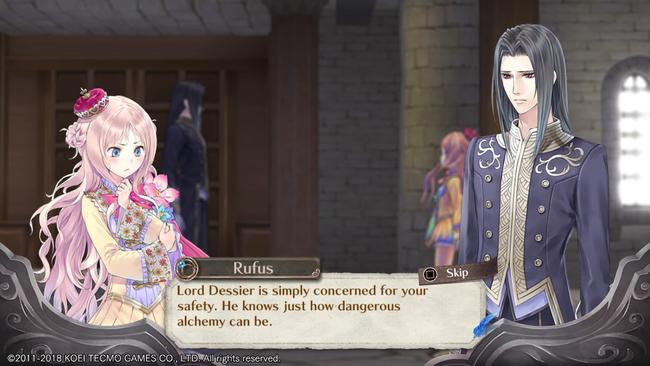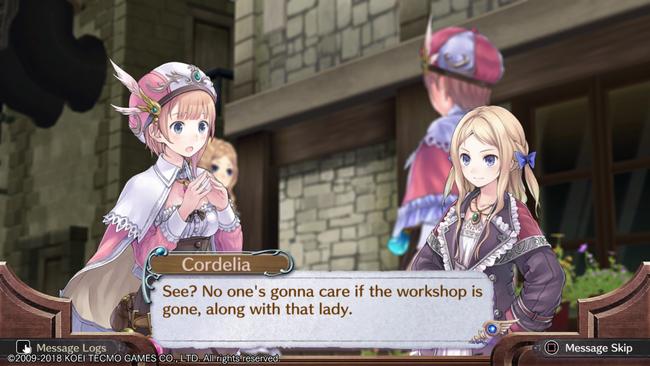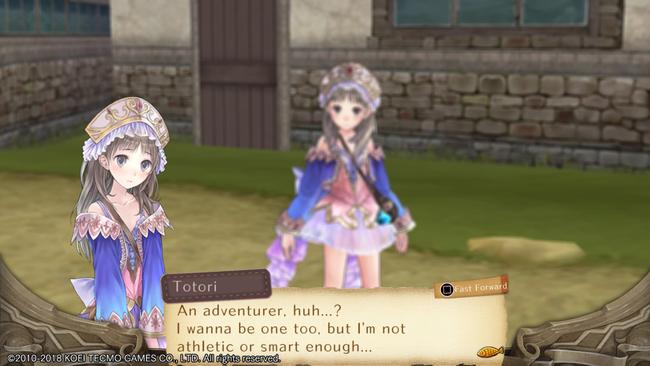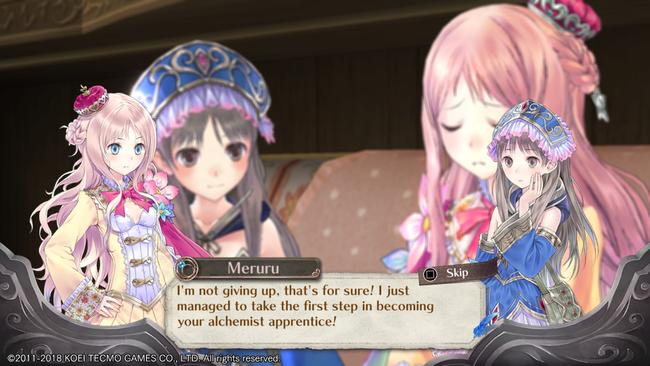
Atelier Arland Trilogy PS4 Review
Atelier Lulua: The Scion of Arland is set to come out next year, marking the fourth entry in the Arland subseries and one of the few times that developer Gust has gone beyond a trilogy for its massive Atelier series. There’s just one problem, though--the three previous Arland titles were released years ago on the PlayStation 3 (and eventually re-released on the Vita), so many newcomers to the series may be a bit lost as to what is happening when Lulua releases.
Thankfully, Koei Tecmo saw fit to release The Atelier Arland Trilogy on PS4, Switch, and PC, letting players catch up on the subseries before Lulua releases. But six more Atelier games have been released since the final game of the Arland trilogy, Atelier Meruru was released. How well does this trilogy hold up now?

These releases of the Atelier Arland trilogy aren’t just the base games, like the Arland Trilogy that was released on the PlayStation 3. The three titles (Atelier Rorona, Atelier Totori, and Atelier Meruru) are all their “DX” versions, which gives them extra features but requires a bit of explanation first. When each of the original PS3 titles was ported to the Vita, they were given “Plus” versions, that added extra content and/or tightened up some mechanics for the handheld. The “DX” versions are essentially the same as the “Plus” versions, but also adds in all the DLC from those Vita titles for free. So essentially the “DX” versions are the definitive versions of the Arland titles… but if you played the “Plus” versions all that’s really been added is costume DLC.
Still with me? If you’re new to the Arland games, all you have to worry about is if they’re worth playing. The answer to that, however, really depends on what you liked about other Atelier titles (if you played them), and how much you enjoy time management in your games. The Arland titles all have time limits you must adhere to in order to avoid getting bad endings, something the later 'Mysterious' trilogy (Atelier Sophie, Atelier Firis, Atelier Lydie & Suelle) did away with. While generally, the time limits aren’t so strict that you have a high chance of failing in any of the games, it can still be a bit stressful at times.
Other than this, though, the core of the Arland games are the same as its sequels--create cool items, explore the country, and generally just live out life as an alchemist. There’s rarely a big bad boss to defeat or any real conflict common to most RPGs (unless you’re trying to get some very specific endings in Totori or Meruru), so the Arland titles are generally most laid-back, slice-of-life titles.

Atelier Rorona: The Alchemist of Arland DX is the first title of the Arland trilogy. This game stars the somewhat airheaded Rorona, an apprentice alchemist that’s suddenly thrust into an unfavorable situation by her apathetic master, Astrid. Rorona must complete a number of assignments over three years to prove the worth of their failing alchemy workshop, or face exile from her homeland.
Since Atelier Rorona DX is practically the same as Atelier Rorona Plus, I recommend you check out Zack’s review of the Vita title. Interestingly enough, while the PS3 version of Atelier Rorona is a bit difficult due to outdated mechanics, Atelier Rorona Plus was the last of the trilogy to be ported over to the Vita and features a number of upgrades from later games to make the game a bit more fun to play, the most significant of which being more intuitive ending requirements. It does make it a bit jarring to play Rorona first then move on in the trilogy and those games not having the same upgrades, however.

Atelier Totori: The Adventurer of Arland DX takes place 10 years after Atelier Rorona. Here we meet Totori, a young girl from a small fishing village who wishes to follow in her missing mother’s footsteps to become an adventurer. While of course, the main draw of the title is still alchemy, Atelier Totori does put an increased emphasis on getting out there and exploring the world.
While I believe Atelier Totori has the best storyline of the trilogy, mechanically it’s probably the most stressful. In the Atelier games traveling takes time, and generally, you want to plan out your trips for gathering materials well in advance so you don’t miss any deadlines. Atelier Totori’s emphasis on traveling can feel difficult to manage at times, though (even if it truly isn’t). It would stress me out watching weeks tick away while I walked over to a far edge of a map and explore it, with extra days gone from picking up materials.
It’s just a feeling, however--in reality, Atelier Totori’s deadlines are less strict than Atelier Rorona’s, but that doesn’t help the fact that it looks like you’re just wasting time, mechanically. But overall this game improves a lot on Atelier Rorona. Ending requirements are generally easier to figure out, and the addition of a second Atelier takes the sting out of traveling so much.

Atelier Meruru: The Apprentice of Arland DX is the last of the trilogy, and is not-surprisingly the most refined of the Arland titles. Meruru is the princess of Arls, a small frontier country, and in five years it’ll become part of the Arland Republic. As royalty, it’s up to Meruru to build her country up to be worthy of the Republic, and she has taken quite the interest in alchemy.
Building up Arls with alchemy is a lot of fun, and the overall progression just feels better than Rorona or Totori. Completing quests to level up Arls isn’t much different than requests from previous games, but it feels like you’re accomplishing more as you make your kingdom better. Most of the mechanics are the same from Totori, but with the decreased emphasis on exploring, the game’s alchemy based mechanics get to shine more.
The Atelier Arland Trilogy is just a great set of Atelier titles. They may be missing some of the enhancements from later entries of the huge series, but these games make up for that with heart. When I play the Mysterious trilogy, I always felt like I was just meandering around, not really making real progress until the game decided to reward me with some new cutscenes. With the Arland titles, the time limits and assignments help give a real feel of progression, while never feeling so stifling as to be particularly stressful.
I’d recommend this trilogy for anyone that really enjoys laid-back, slice of life titles. Rarely are you going to go out there and save the world, but you’ll enjoy a happy life creating items and making people happy… and sometimes, that’s all you can ask for.